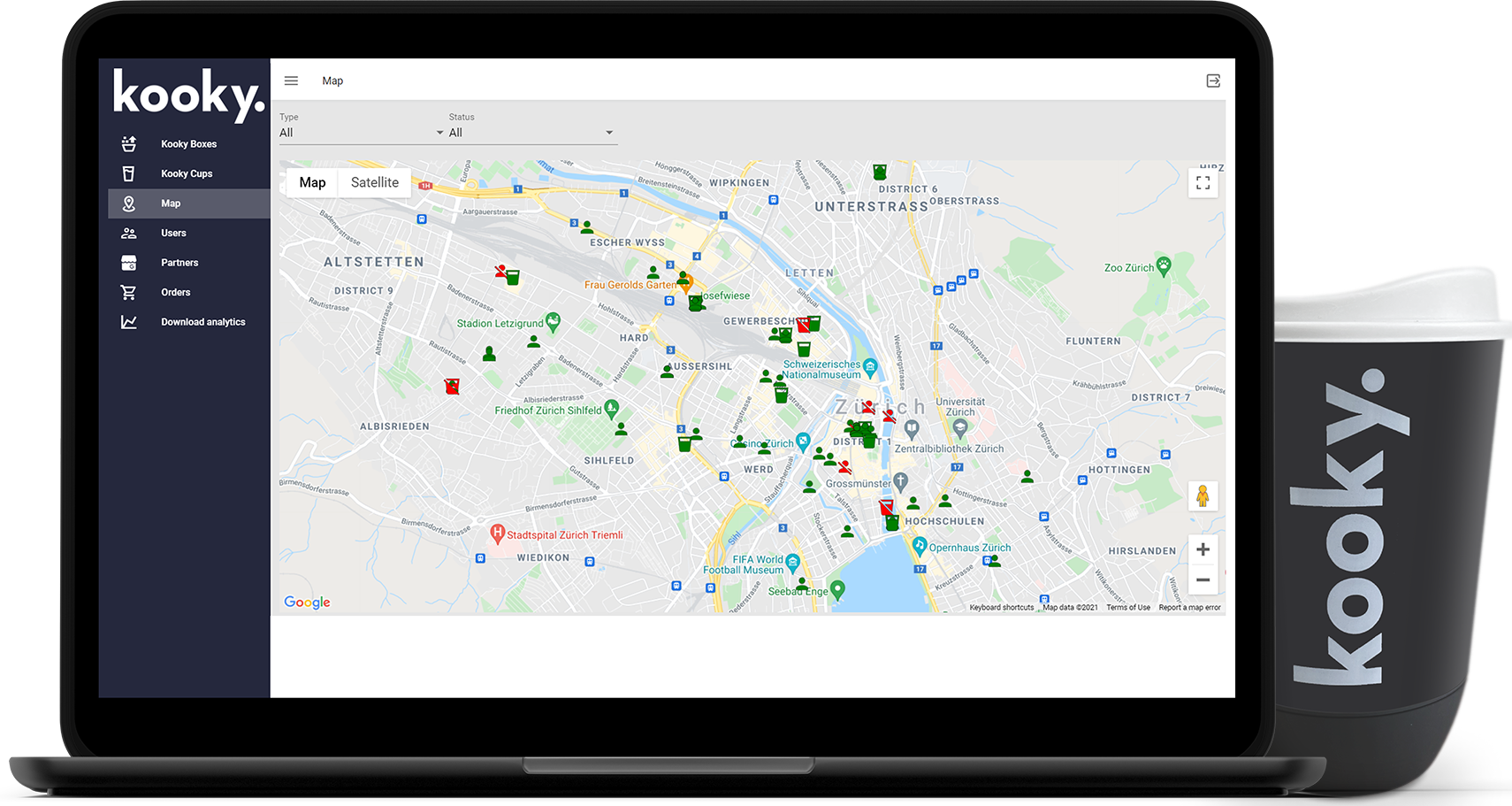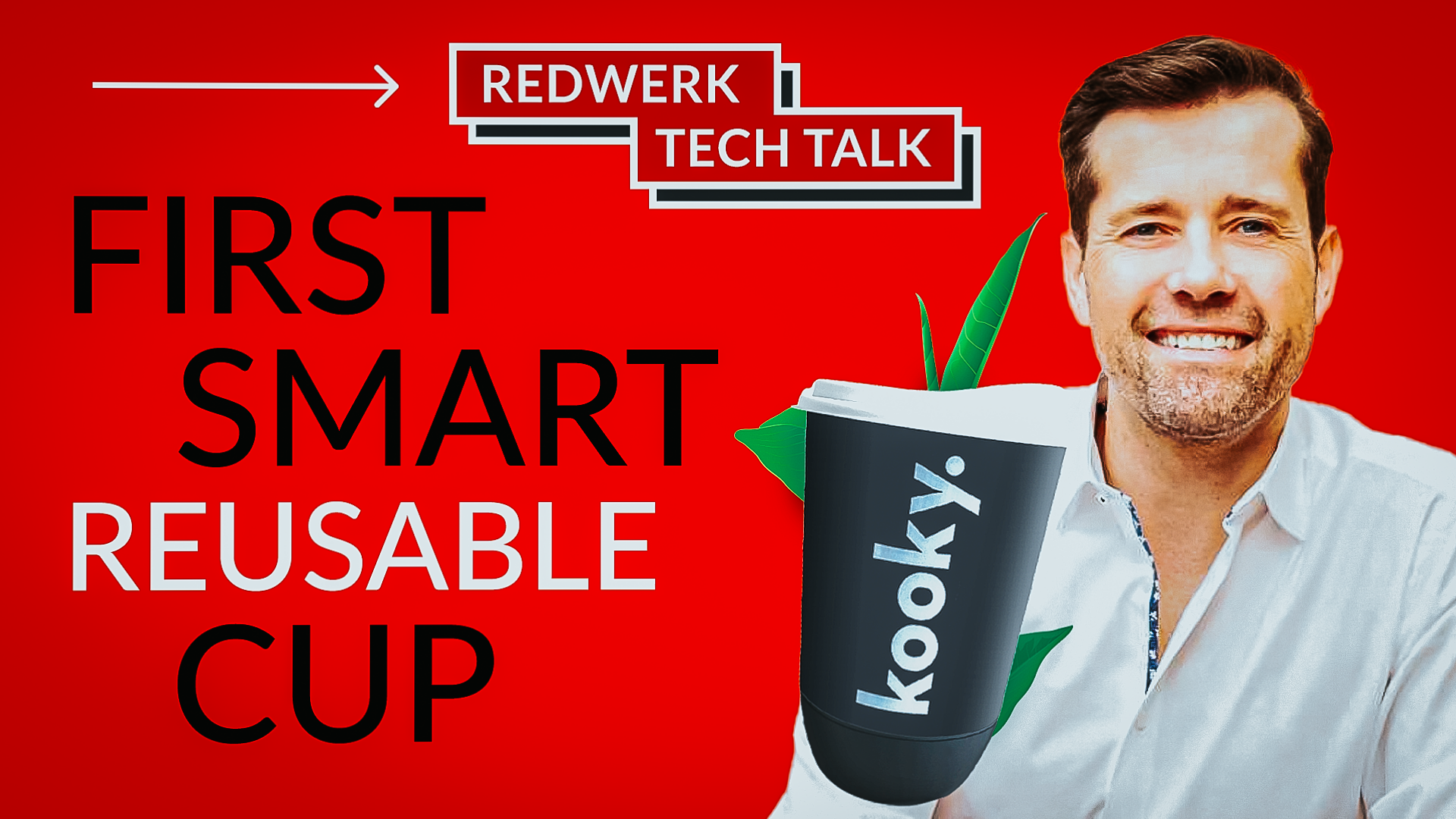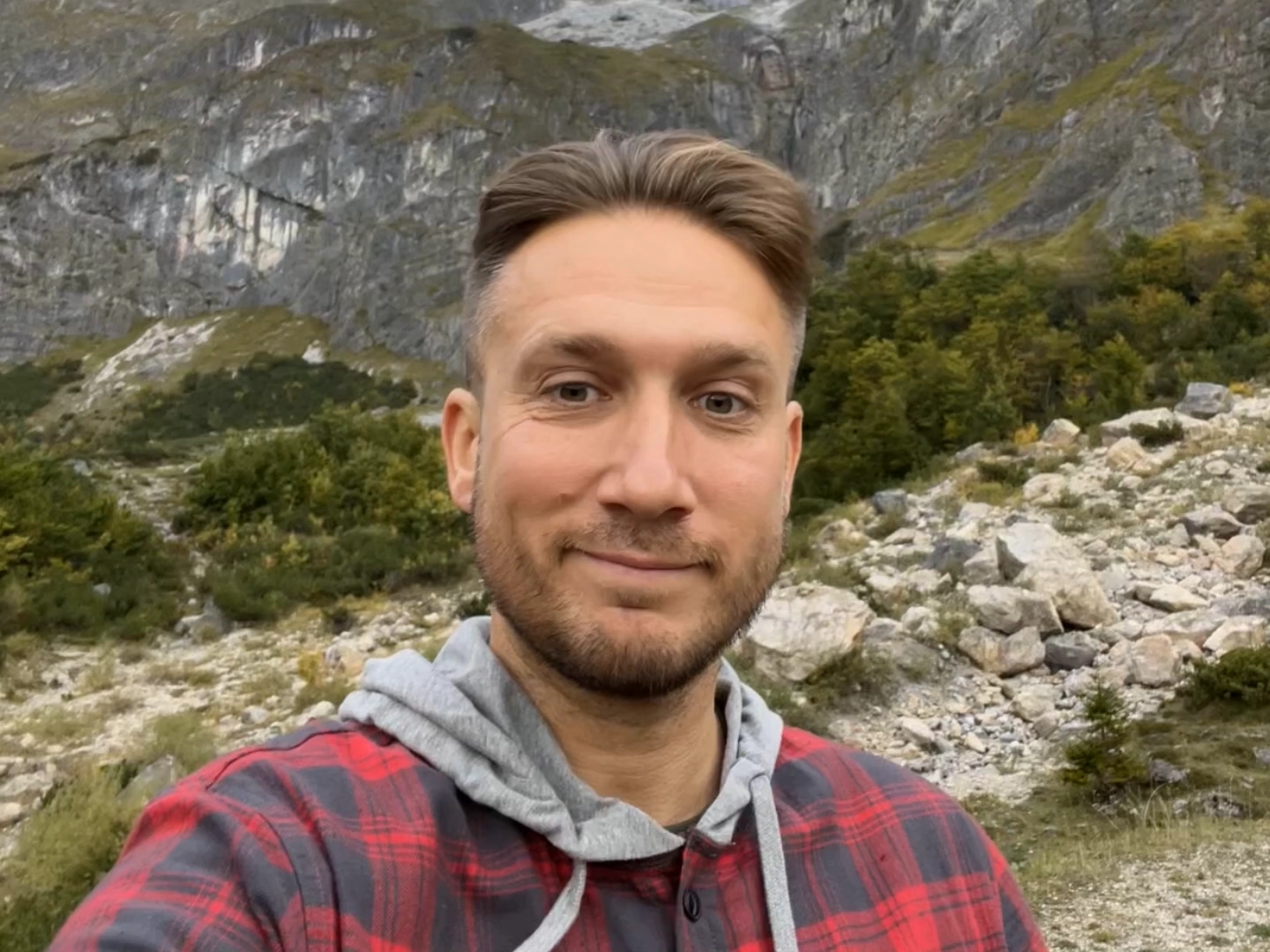The green tech market is relatively new; however, it is gaining momentum due to the increasing global awareness about the environmental crisis we live in. It is estimated that by 2030, the green tech and sustainability market will reach about $75 bln.
Green tech is quite a broad term, encompassing all technical solutions that help reduce the negative environmental impact caused by human activity. While green tech is often associated with clean & renewable energy, eco-friendly manufacturing, and sustainable farming, it goes far more than that. The green tech market also covers all the businesses in the reuse niche.
Scientists, eco-activists, and professionals at large have long realized that recycling alone is not sufficient and often counter-productive, whereas reusing and reducing are much more efficient ways to live eco-friendly. In 2019, this idea was supported by most European countries. In Turkey, Italy, France, and Austria, the percentage of respondents willing to reuse and repair products rather than throw them away stood at 70%, 64%, 62%, and 58%, respectively. Now that the pandemic has deteriorated the waste management situation further, we believe the people’s willingness to reuse items is even higher.
The need for change is apparent as mismanaged plastic waste is only increasing with every passing day, and by 2040, it is projected to triple in size.
Source: Statista
According to the 2021 World Economic Forum report on the future of reusable consumption models, recycling would manage only 42% of all plastic used in 2040. Therefore, reuse should be the main objective for producers and policy-makers worldwide.
Green Tech Development: Kooky Project
Kooky, a Swiss green tech startup, is a brilliant example of why the reuse industry is the future and a key to sustainable living and responsible consumption. Kooky is an intelligent reusable cup system designed to replace disposable cups in a way convenient to the consumer and foodvenience provider. Disposable cups are among the top ten commonly found single-use plastic items on European beaches, and yes, those paper cups for beverages are lined with plastic inside. More than a billion of those are thrown away daily, yet their lifespan rarely exceeds a couple of minutes.
Our Redwerk team is thrilled to be part of such an environmentally significant project; that’s why we’d like to spread the word further and perhaps inspire you to join the ranks of happy Kooky users and partners. And if you’re interested in how Redwerk contributed to the Kooky launch, make sure to read this article.
Meet Torge!
We invited one of Kooky’s co-founders to discuss the future of green tech, reveal how the startup was born, what challenges have been overcome, and of course, find out their plans for the future. Let’s dive right in!
Please introduce yourself.
Hi, I’m Torge. I’m the co-founder of Kooky, a reusable cup concept we just recently launched in Switzerland – in Zurich and in Basel. I’m from Germany but I’ve been living in Switzerland for the last 11 years. Coming from the startup consulting business. I was in the micro-mobility with e-scooters – that was my last project and now I’m in Kooky and reusable cups.
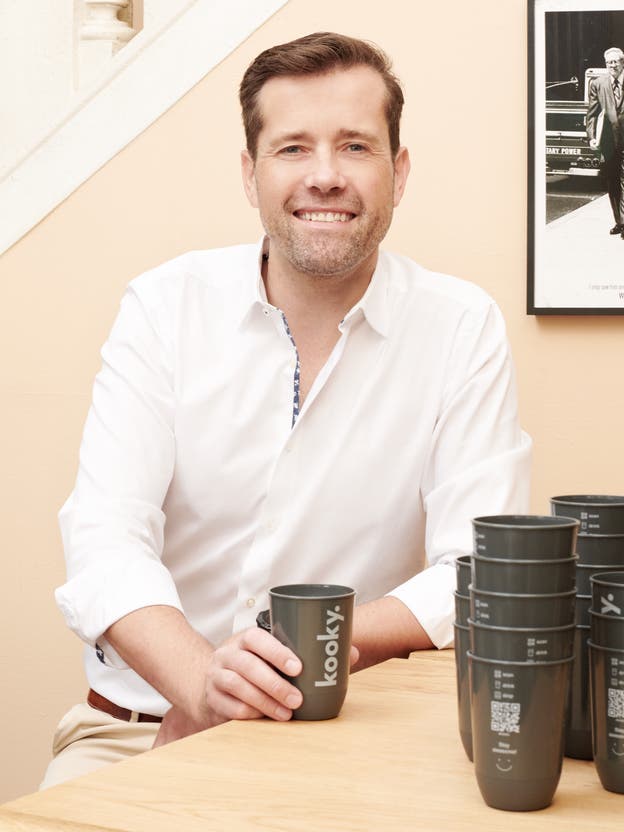
Tell us about Kooky a bit more. What is your mission?
The mission with Kooky is to reduce waste. So currently we have a lifestyle in our society that you grab and go. Everything is getting more and more into takeaway, especially for lunch, the people are going out, they are mobile, they grab their one-time cups and food containers, and then they are leaving, and then they have to get rid of them. So they just throw them in the trash and this is, of course, not good for the environment. And it’s pretty expensive for cities and for companies as well to get rid of them.
Will this kind of mentality expand to other countries with time?
I think there is a huge movement currently, especially in Europe from the 3d of July; plastic items like straws are forbidden. So this is already a movement which comes into the society. So I think we are on the right time and having this momentum that the awareness is pretty high. Our focus is currently Switzerland but due to the development in Europe, we are also looking forward to reaching new markets.
How did you come up with the idea and how does it correspond with your lifestyle?
In January. Max, the co-founder, came to me with the idea to make reusable cup systems smarter and digital. So he came to me, and since I had the experience, like I said, in micro-mobility with e-scooters, I reached out to my network and said okay, can we do something? And then I found great support with great people who supported us in tech – in embedded software and hardware. That’s why a very good friend of mine reached out to Redwerk and I’m happy to have you as a strong and very powerful partner.
What’s going on in the reuse industry? What are the main challenges of today?
I think the main challenges, and I’m coming back to your earlier question when you said how it corresponded with my lifestyle, for example, is that my lifestyle is the lifestyle of a lot of people. They want to use reusable systems but it’s not comfortable, maybe, because there was no nice way to return your coffee cup.
In an analog world, it’s really that you have to find another location, another outlet where you physically have to bring it back, maybe stand in line, or get your euro or frank physically back. And also for the gastro partner, it was not convenient. Maybe you’re just the one to receive the cups but not giving cups out, so you have a plus of cups but nobody wants the cups from your location. So this is what we actually are looking for and how we can solve the problems from the gastro partner and the user side.
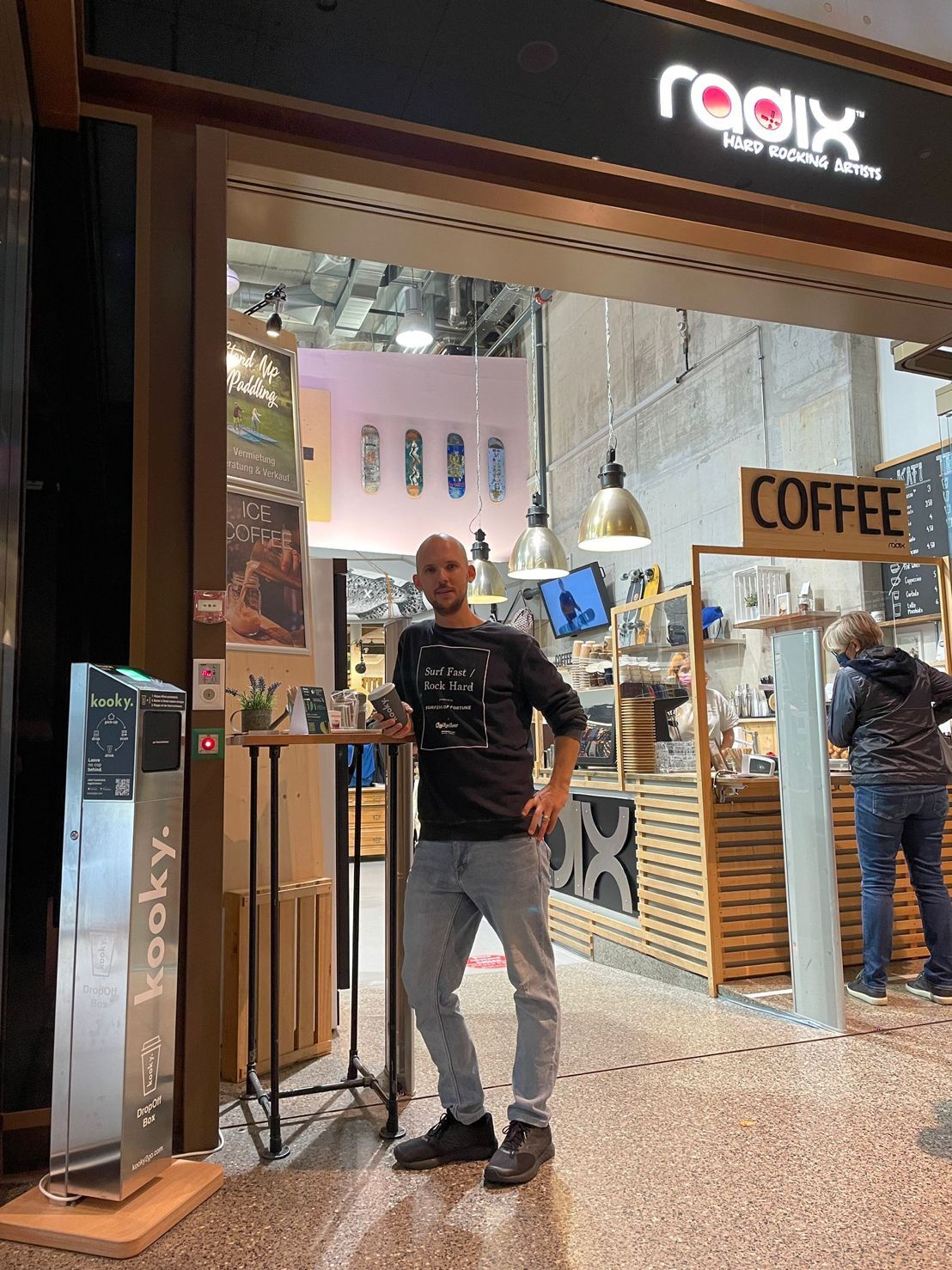
What is your personal opinion on Greta and the whole movement?
I think every movement needs an icon. And for the environment, it’s Greta. I personally would say, like I said, some people need that, I think, but most people are doing it because they see the change in the world, they see the impact of climate change right now. And also, there’s nothing good about COVID but the awareness, it helps people think even more about the environment because there’s no need to fly all the time, for example. And there’s a huge potential to be more efficient and to optimize your life more when it comes to environmental-friendly behavior.
What initiatives do you consider to be greenwashing?
We’re not looking for greenwashing at all because greenwashing is always a bit negative – that you do something on the surface. What we want to do is have a deeper impact and really make a change. And we’re just starting with cups but this is definitely not the end. So, there are other food containers that you can use. On the other hand, it’s a cup and it’s not a coffee cup so you can have other beverages in it – you could have ice cream in our cup. You can use it for so many things and make your life and the life of your customer much easier.
Do you consider developing it into something more than just a cup, perhaps a food container?
That is definitely the goal. We just started last week with our launch, so we’re in a very early stage, we have a nice pace. But now we have to do our homeworks, now we have to really make our learnings to have a huge density of boxes in a certain area to give the user a very good experience using Kooky. Because for us it’s important that you have the ability to find a box within the next 2 or 3 minutes. So it gets more comfortable, and maybe at the end you have a full Kooky box.
Our Kooky boxes are very small, they’re not huge containers, they are not huge machines, so they fit in every outlet, every vendor can use us. Maybe there will be another small Kooky box for both. We are constantly developing and see opportunities and then work on them.
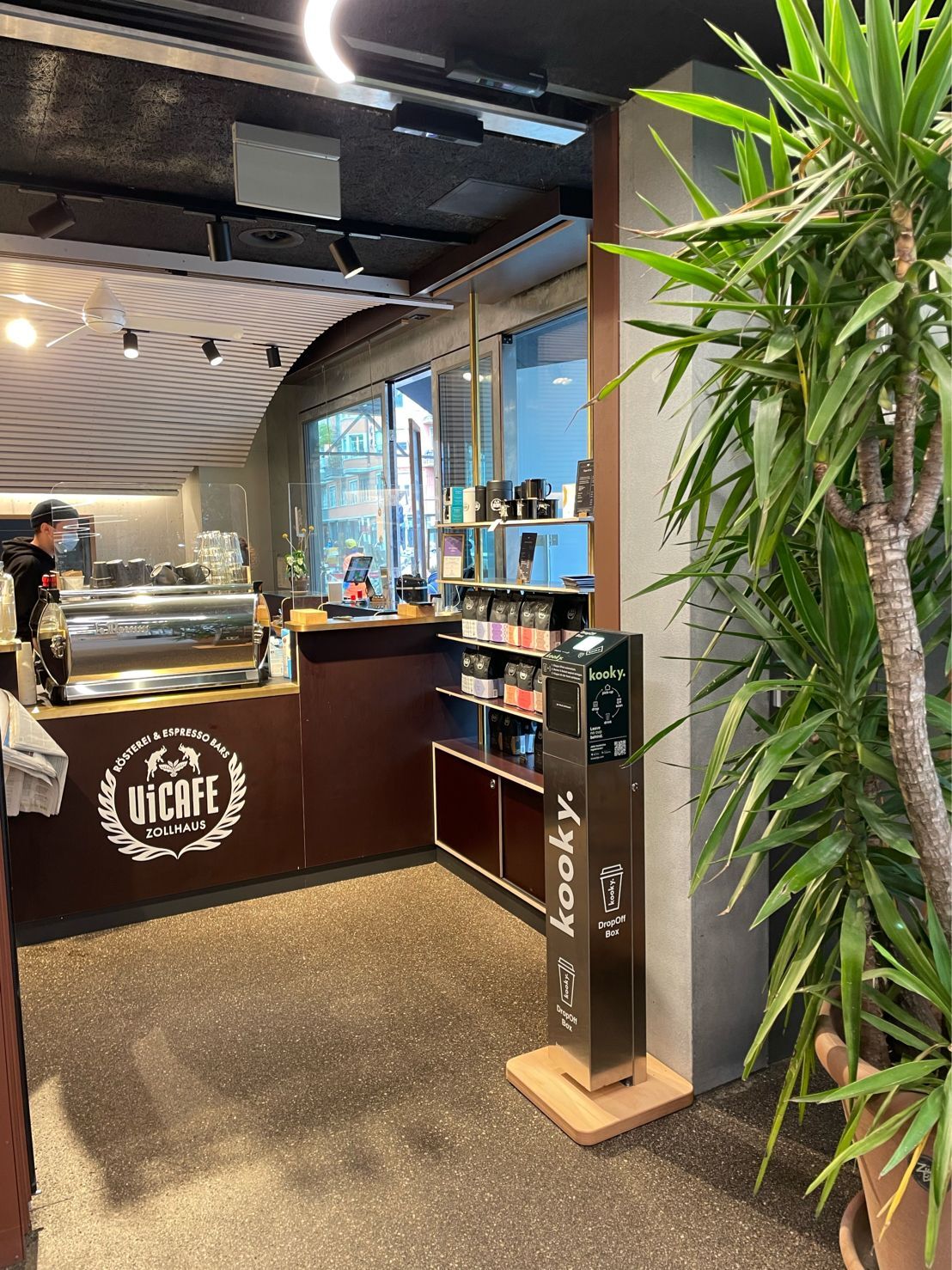
What is the main reason so many people still use disposable cups and containers?
Because it’s so convenient. Fifteen years ago, I had the plan to go to New York, work there, grab a coffee at Starbucks, and then go to work. So this is a kind of a lifestyle. People are moving, and that was 15 years ago. Now it’s even more popular: you take everything to go because you don’t want to waste time, you want to enjoy your great coffee while you walk or while you’re at the lake, or in the park, so this is where we see the biggest thing that people are getting more and more mobile.
Can sustainable living technology impact the ecosystem in time?
I’m a strong believer in that because a couple of years ago, you didn’t have the technical possibilities that we have today. So when we talk about smart devices, when we talk about app technology, we’re talking about a small plastic cup. When I say we – together with Redwerk, we make this cup intelligent, we make it smart.
So, with a combination of QR code and NFC tag we know the stages of our cup. Our hashtag is leave no cup behind, so this is what we want to do. We don’t want to track the user, we just want to track our cups because we don’t want these to get hidden in the kitchen or thrown away. We want them back, we want them washed, we’re not a plastic company, we’re a tech company. So that’s why we’re not making money by hoping that our customer will not return our cups. We want to have the best user experience that we could have.
On the technology side of things, what was the main challenge for you?
When we started this whole thing and I had the first talk with Dmytro in Berlin, we didn’t think of such a complex app or a complex system. We thought about, okay, we could have it in two or three weeks because it’s quite simple. And then we’re getting more and more into the details and we said okay, we would like to have a partner portal for a customer partner so that they can easily do their orders on their own, and track their orders, and do all the invoices, and history.
Then we saw, okay, what can we do for the user? It’s state-of-the-art technology and this was the biggest challenge to get everything in time for our launch because we had a hard launch. We had a hard date because we are doing a cooperation with the federal railway company, SBB here, so this was – we need to have the product then, that was actually our driver. There was no let’s do it a week later or do it a month later because it’s not working. It’s yes, fixed date and go. It was a beauty.
A big cooperation with a federal company. How does this help you?
It’s a government-owned company. And of course, SBB gives us a lot of reputation, so we’re currently in Zurich and in Basel on the train stations. So we have a huge visibility there. People come when I do operations, like yesterday, people come to me and say, What are you doing? What are these book boxes for? So there’s a lot of asking and we give a lot of information because it’s quite new, but they are standing on every recycling station, more or less, there’s a Kooky box next to it, so it’s very visible.
The thing with SBB is that we had the chance to talk to other partners like huge retailers or huge takeaway providers so they are our partners as well, that’s why it’s really nice to work together with SBB. When it comes to SBB, they were very fast, so it was the right momentum because they were looking for a reusable system and then we came. They trusted us that we will have a product in time and that we could run that, so we as a team were able to deliver and that makes me proud, but this is just the beginning.
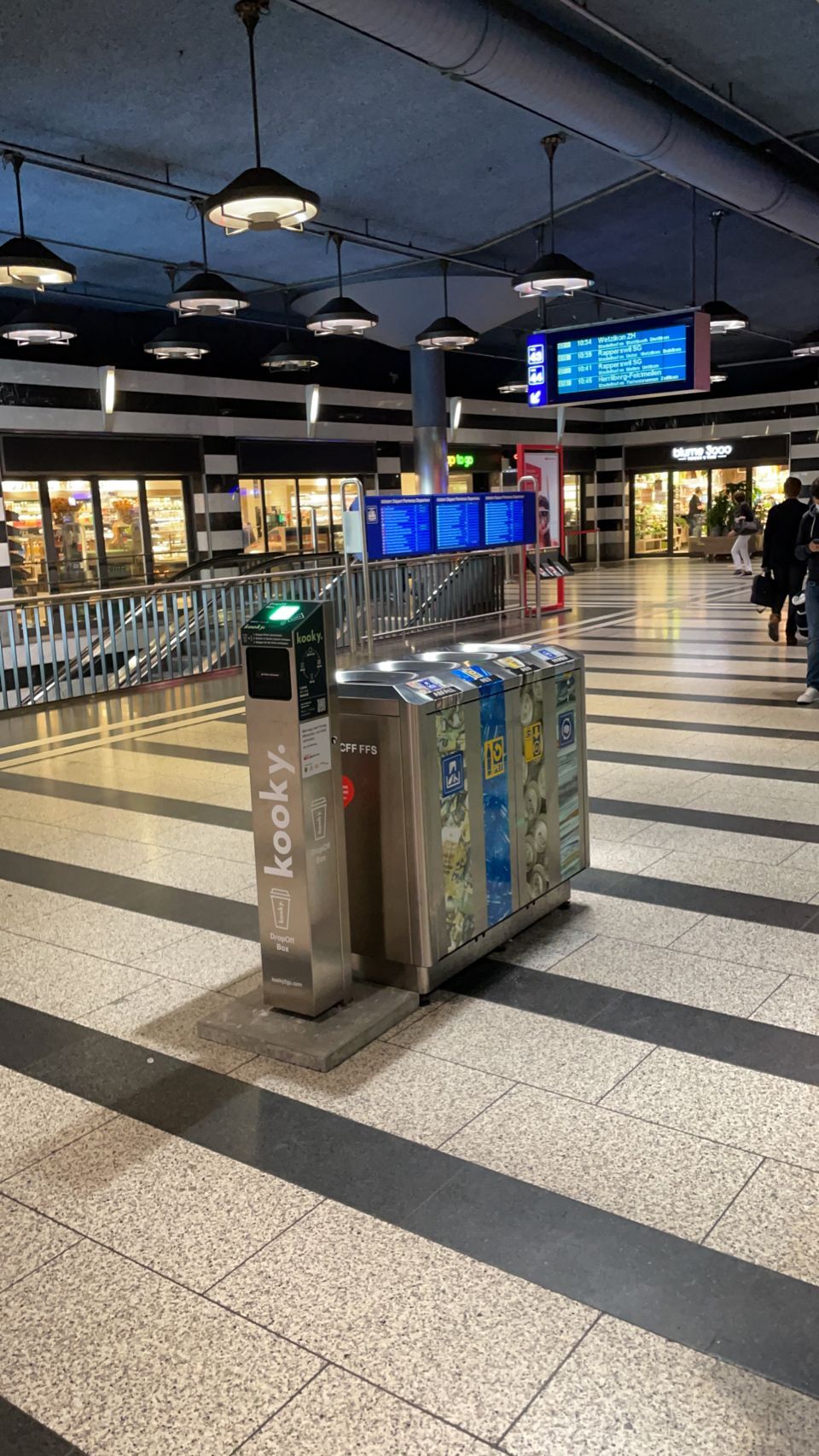
For a startup like yours, is it more convenient to hire in-house or cooperate with service agencies?
I think it’s a combination of both because you need to have in-house sources, also in project management, for example, to really have the translation between operations and tech. It was the first time working together with Redwerk and we would never ever do that without you because hiring a well-known and well-experienced team would never be possible in such a short time.
So when we talk about four and a half months from the idea to go live, you will never do that, no chance. That’s why for us it was a perfect fit to work with the agency and keep working with the agency because it gives us the freedom to know that we can deliver. That’s why I would recommend working with the agency but also have high potentials in-house to coordinate. It should be a good hybrid.
Was it hard to deal with logistics and the whole industrial part of the Kooky project?
What we did, okay, where do we have our risk factors? We have the cups, we have Kooky boxes, and we have the system. So these three things were the risky parts or this was what we’re looking for and define as the most important things of course.
We decided to take out-of-the-shelf cups but in the future we want to have our own cups. Then we said, okay, these are cups that are good to go, they are proven, they work, so we can take them – this was one risk factor that we sorted out.
And then we worked together with you guys, so this was another risk factor because we don’t have to do it in-house. We outsourced it so we can be sure there will be a product. Let’s see how it looks because we changed quite a lot, but we know we will have a product.
So our focus was then to build our own drop-off box. This also involved embedded software on the engineering for the box itself, so this was actually the one that we really did in-house, so focus on that and outsource the other two. This gives us the freedom and the security to deliver in time.
Did the pandemic influence your business and how?
The pandemic influenced us strongly because otherwise Max would never come to me with the idea, I think. Of course, it affected us because on our side and on the side of our partners, you had the chance to really think about new projects and ask yourself what is really necessary, what is the problem that we need to focus and to solve.
Of course, you may say cups are not the main waste issue but it starts in your head. When you as an individual have a chance to do a small step, then, you are ready to do the next bigger step. You have to start somewhere and you don’t want to change your behavior but you want to change something for the environment, so every little step helps to to make this movement a little bigger and more present in the society.
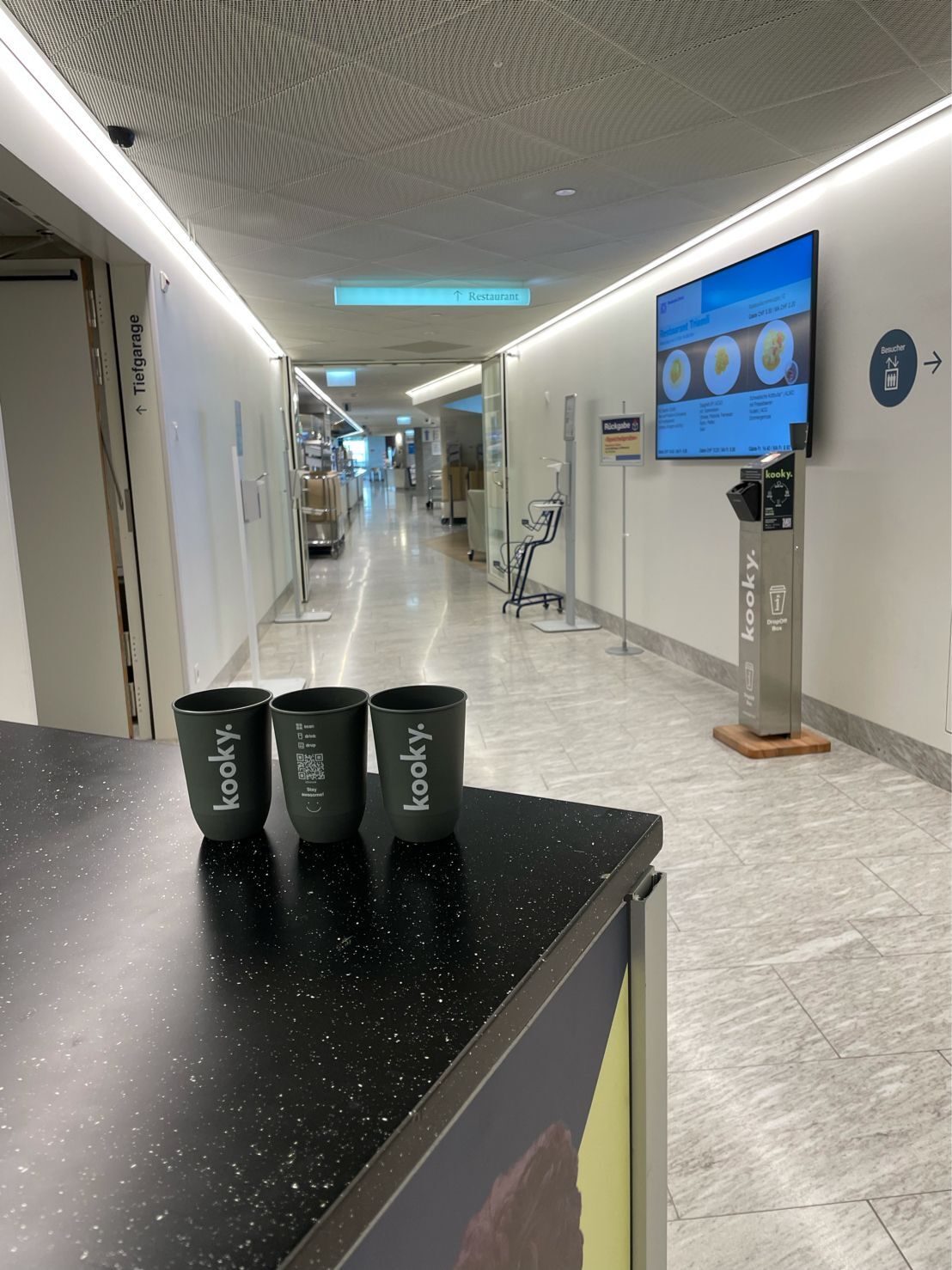
What type of corporate culture do you try to build at Kooky?
We are a team. We actually all have the same goal. Currently, we’re just a small team. When I say small team, it’s roughly 35 people because this includes also our external partners because this is how I define a team.
I think if we all work together, then we can create our own culture, and the culture of course should be – trust, fun, and having a good time but doing something good. So we are focused, we have a goal, we have quite a high pace but you can have it with a smile, and with nice works. And then there is a little bit of tension sometimes because you need to move fast. It’s maybe for five minutes and then let’s have a laugh again. And that’s a good thing when we work together with professionals and motivated colleagues who come from the university.
We have a good mixture. You have to have the experience to also develop colleagues who just come from the university, have great ideas, great motivation, and bring both together to make a trusted base to hopefully do nice things in the future.
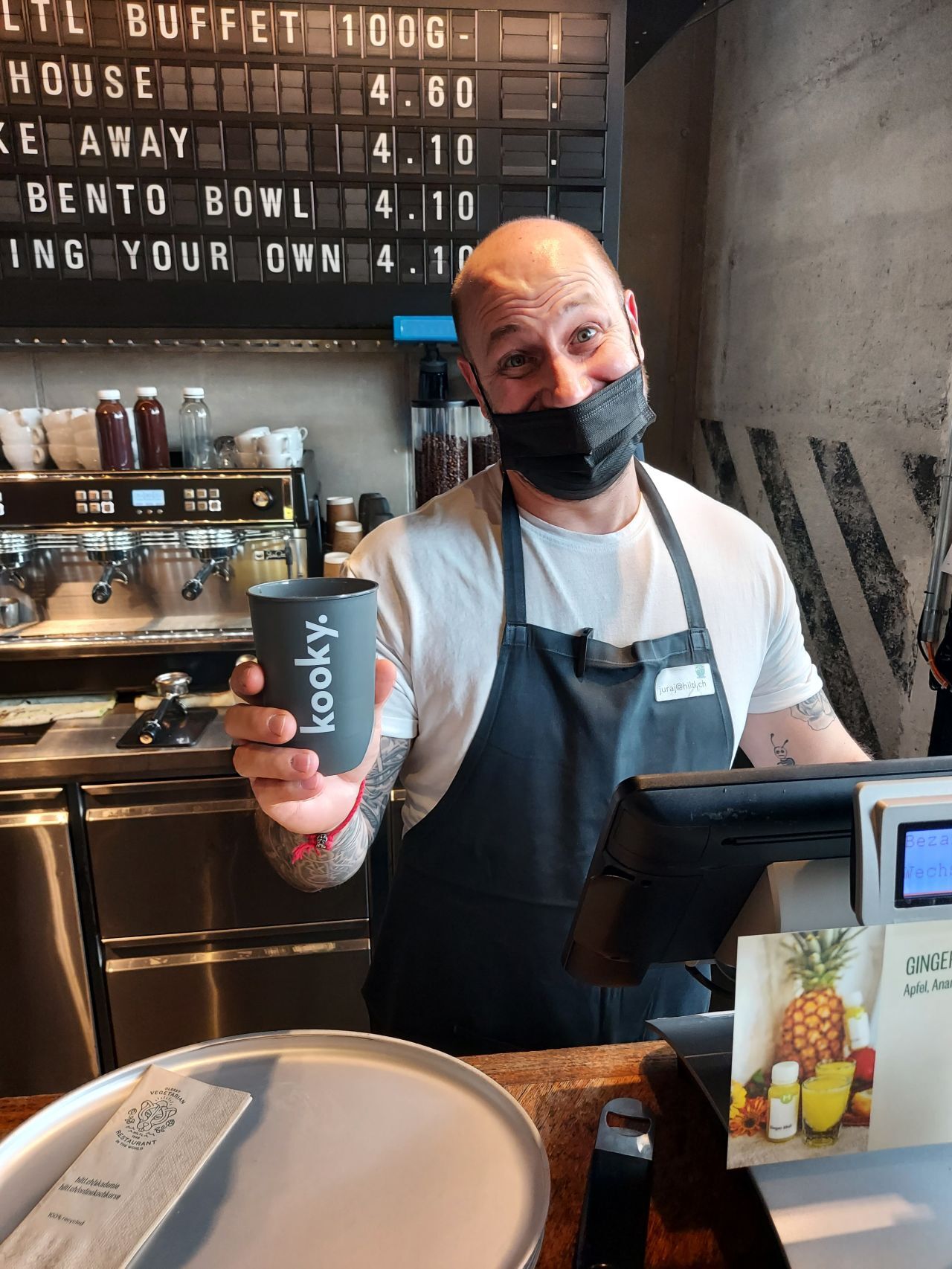
What do you consider most inspiring to move on with your project Kooky?
Being on the market, going live, seeing and getting messages on my smartphones that cups are returned or cups get out. People are using Kooky, they are really doing it. This is the biggest motivation to move on. Let’s say, what can we do next? This is also for developing new products but it’s also the idea, Where can we place Kooky boxes to make it easier, more convenient for the customer to return it? This is now an exciting time.
Summing Up
Green tech is a powerful combination of science, ground-breaking technologies, and environmentally conscious people willing to make a difference. There is no silver bullet to fix all environmental issues at once, but what we can do is start small, like asking for a reusable cup instead of a disposable one. The best time to act is now, and the least we can do is support the green tech solutions already there.
See how Redwerk helped Kooky become #1 digital green solution in Switzerland
